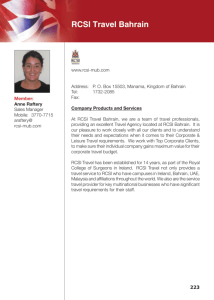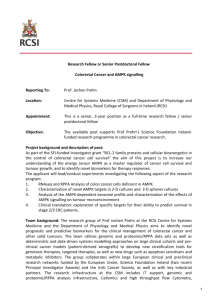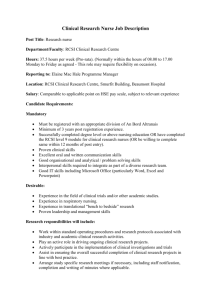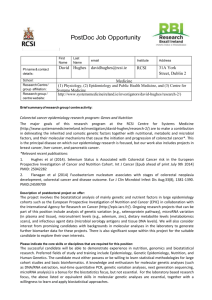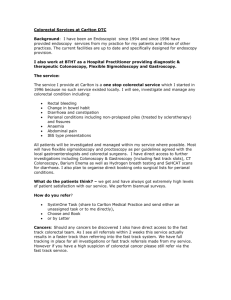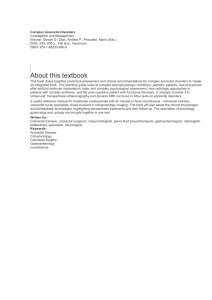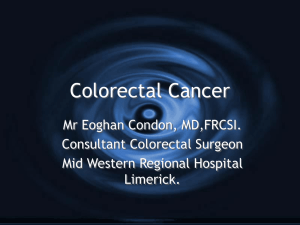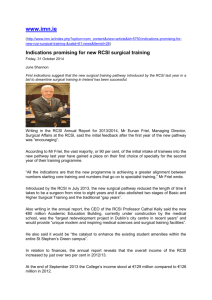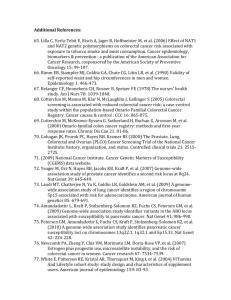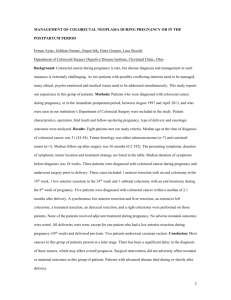Apo-Decide Press Release format – June 2013
advertisement
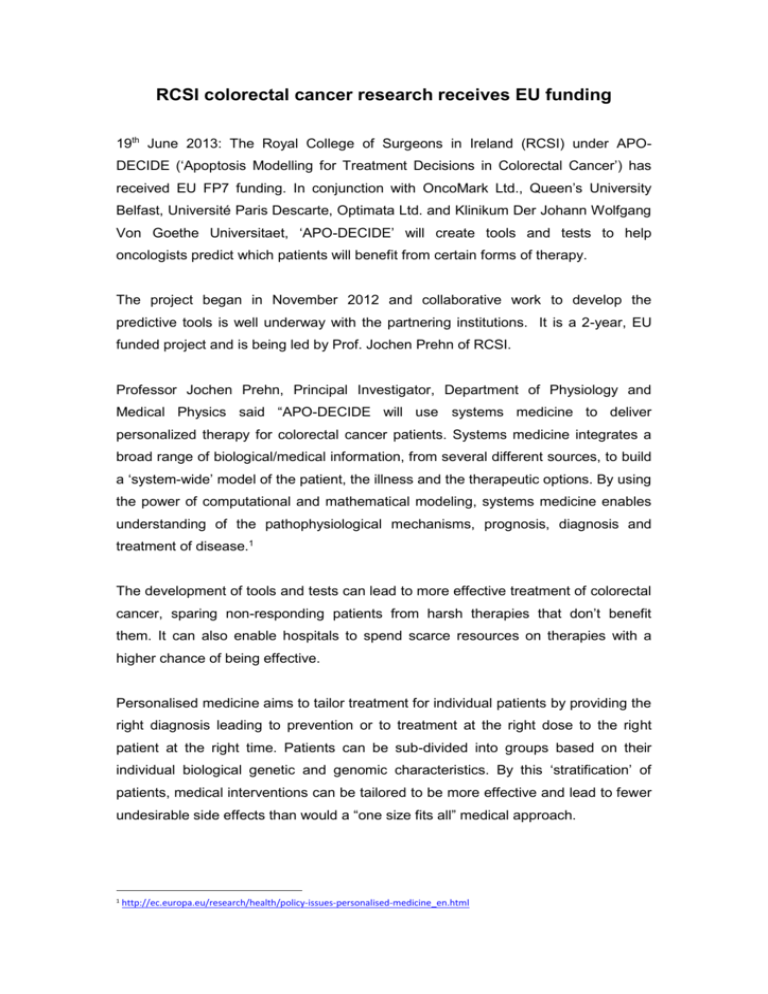
RCSI colorectal cancer research receives EU funding 19th June 2013: The Royal College of Surgeons in Ireland (RCSI) under APODECIDE (‘Apoptosis Modelling for Treatment Decisions in Colorectal Cancer’) has received EU FP7 funding. In conjunction with OncoMark Ltd., Queen’s University Belfast, Université Paris Descarte, Optimata Ltd. and Klinikum Der Johann Wolfgang Von Goethe Universitaet, ‘APO-DECIDE’ will create tools and tests to help oncologists predict which patients will benefit from certain forms of therapy. The project began in November 2012 and collaborative work to develop the predictive tools is well underway with the partnering institutions. It is a 2-year, EU funded project and is being led by Prof. Jochen Prehn of RCSI. Professor Jochen Prehn, Principal Investigator, Department of Physiology and Medical Physics said “APO-DECIDE will use systems medicine to deliver personalized therapy for colorectal cancer patients. Systems medicine integrates a broad range of biological/medical information, from several different sources, to build a ‘system-wide’ model of the patient, the illness and the therapeutic options. By using the power of computational and mathematical modeling, systems medicine enables understanding of the pathophysiological mechanisms, prognosis, diagnosis and treatment of disease.1 The development of tools and tests can lead to more effective treatment of colorectal cancer, sparing non-responding patients from harsh therapies that don’t benefit them. It can also enable hospitals to spend scarce resources on therapies with a higher chance of being effective. Personalised medicine aims to tailor treatment for individual patients by providing the right diagnosis leading to prevention or to treatment at the right dose to the right patient at the right time. Patients can be sub-divided into groups based on their individual biological genetic and genomic characteristics. By this ‘stratification’ of patients, medical interventions can be tailored to be more effective and lead to fewer undesirable side effects than would a “one size fits all” medical approach. 1 http://ec.europa.eu/research/health/policy-issues-personalised-medicine_en.html Colorectal cancer has the second highest death toll (after lung cancer) of all cancers. This is partly because the cancer has no symptoms and is difficult to detect before it is substantially developed, so that early diagnosis and treatment is difficult. Even after diagnosis, many patients whose cancer has been detected don’t respond to the standard chemotherapy treatment – this causes even more delay until they get a treatment that works for them, as well as exposing them to the side-effects of harsh treatments to which their bodies don’t respond. More information about the project can be found at: http://www.apodecide.eu/ ENDS For more information contact: Niamh Burdett Communications Manager Royal College of Surgeons in Ireland 01 402 2218 / niamhburdett@rcsi.ie
